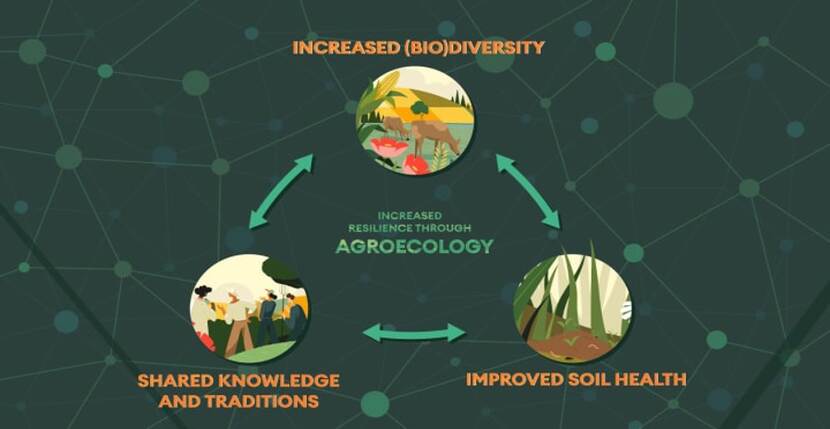08 Jun Nature-inclusive Agriculture in Canada
The Netherlands Agricultural Network (LAN) is actively exploring nature-inclusive farming practices worldwide. In the latest edition of their e-magazine - Agrospecial Nature-inclusive agriculture worldwide - 36 countries provide a detailed overview of the development, benefits, and challenges associated with this innovative farming approach.
Nature-inclusive agriculture recognizes the interdependence between agriculture and the natural environment, aiming to strike a balance between sustainable food production, biodiversity conservation, soil health, water management, and carbon sequestration. The e-magazine showcases examples of farming practices, sustainable business models, increased resilience, and income diversification, presenting potential opportunities for Dutch and international entrepreneurs, companies, green knowledge institutions and other stakeholders. It focuses on how the transition towards nature-inclusive agriculture is supported in each country and in which way it is incorporated into local and national policies and decision-making processes. It shares insights into global trends, practices, and initiatives, enabling stakeholders to gain a competitive edge in both public and private sectors worldwide.
Nature-inclusive agriculture is gaining popularity among Canadian farmers. By combining indigenous agriculture with new innovative methods, they can reduce their environmental impact and improve the resilience of their farms.
Indigenous agroecology
Indigenous communities in Canada, including First Nations, Inuit, and Métis peoples, are particularly well-equipped to practice nature-inclusive agriculture, as they have a sound understanding of local ecosystems, weather patterns and plant behavior. They are known for their methods of agroecology, using traditional land management techniques such as rotational grazing and intercropping. They also prioritize the preservation and revitalization of traditional crops and seed varieties that are adapted to their specific environment. These methods promote biodiversity, soil health, and natural pest control, which in turn reduce the need for chemical inputs.
By combining these traditional methods with modern, innovative approaches, Canadian farmers not only reduce their environmental impact but also improve the resilience of their farms in the face of a changing climate.


Sorry, the comment form is closed at this time.